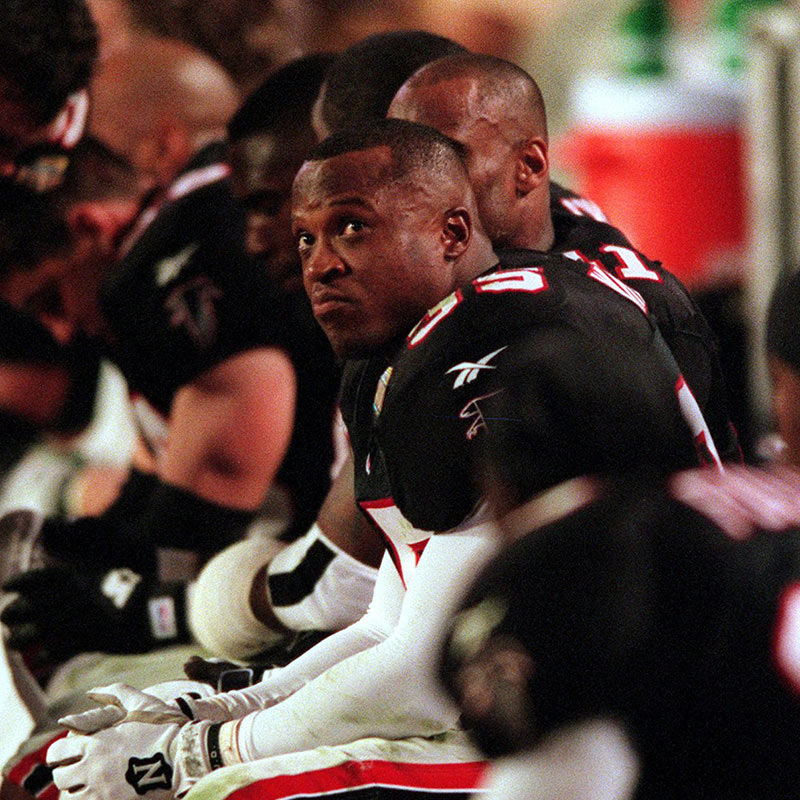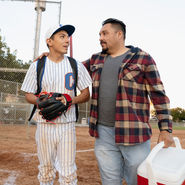I’ve never received a terminal diagnosis, but I have been present when loved ones have received the news that changed their life.
When our family physician informed my family that my dad was going to die from lung cancer, the news didn’t seem real. I couldn’t fathom that he would not get to enjoy his retirement. The fishing boat he bought would never be used. He would not get to watch his grandchildren grow up, and some he would never even get to meet.
Death came fast. He was diagnosed in December 1996, and he died on his wedding anniversary six weeks later, one day after his sixty-fifth birthday.
Several years later, I stood with my family at the bedside of my sister-in-law when she left this world at age 46. Nothing really prepares you for these moments. At the time, all you can lean on is your faith, which becomes strained under the weight of grief.
I’m not the only person who wonders how I would react if I received devastating personal news about my own health. How would I feel to receive a phone call with news that could change my life in a split second?
William White has been there. During his days as a safety at Ohio State, he met some of the toughest running backs head on and made phenomenal defensive plays throughout his career as a Buckeye.
Later in the NFL, he started for the Atlanta Falcons in Super Bowl XXXIII. He has demonstrated he can handle physically difficult situations on the gridiron.
He’s a tough guy. He’s also a child of God.
But his response to his own terminal diagnosis caught me a little off guard.
William recently told a packed house at the Athletes in Action Night of Champions Hall of Faith Ceremony about his journey with Amyotrophic Lateral Sclerosis (ALS), better known as Lou Gehrig’s Disease. There is no cure to this condition that gradually deprives individuals of their strength and the ability to speak, eat, move, and even breathe.
“My doc comes in, and he’s crying, and he tells me I have ALS,” William said. “I said, ‘Okay, and?’”
He responded to his doctor nonchalantly, as if he were at dinner and his waiter had just told him that his steak would be right out.
His doctor did not think he understood the severity and consequences of the debilitating diagnosis.
“You are going to die from this,” his doctor predicted.
William countered with two points to his physician.
“We are all born, and we will all die. I can promise you this, that God is not up there looking down and saying, ‘Hmmm, William, I didn’t see that one coming.’”
And we know that all things work together for good to them that love God, to them who are the called according to his purpose (Romans 8:28).
He gave a simple message that night. If something bad happens in your life, you better believe there is a reason. You may not understand it at the time, but you will one day if you follow in the steps of the Lord.
He emphasized that if you worry too much about circumstances out of your control, you need to check yourself and examine whether you really trust God.
“Don’t worry about the things you go through, embrace them,” he emphasized. “God is in control, and that is something I have accepted.”
If my doctor gave me bad news, I’d like to think I could possess the same faith William demonstrates. But I’m not sure. His story motivated me to accept what comes my way with boldness and determination, trusting the Lord for His deliverance whether in this life or the next.
There is a plan. Christ never said we’ll always understand it, but He encourages us to wait on Him and believe it’s true . “Wait on the Lord and be of good courage.”
The best thing I learned from William White: Take hold of what life deals you on a daily basis and find a way to give the Lord glory. William is using his terminal diagnosis to tell how wonderful his Savior has been to him through it all. He has a tremendous platform to tell of God’s goodness and is a living testimony of how Christians need to face “adversity.” Instead of having a bleak outlook concerning what has happened, embrace the moment and praise the Lord. He has chosen you for this moment and circumstance.
When William faced a challenge on the football field, he met it head on and made the play. Today, he has the same approach with his health. I know he will come out victorious. When I am met with a personal challenge, I will remember his attitude.
“I have to place it in His hands,” William said. “I’m out of the way.”













